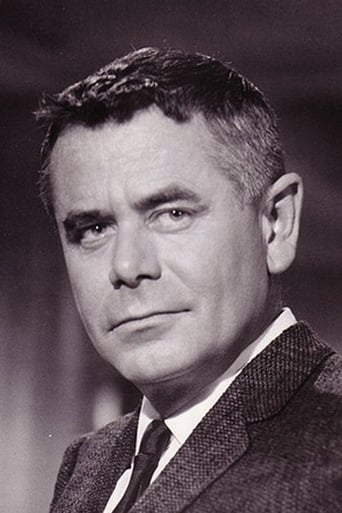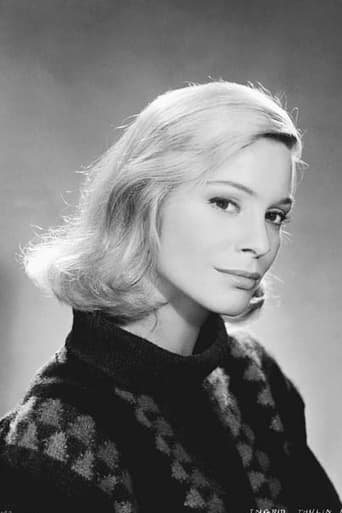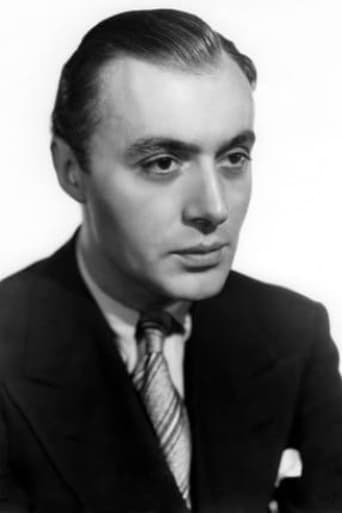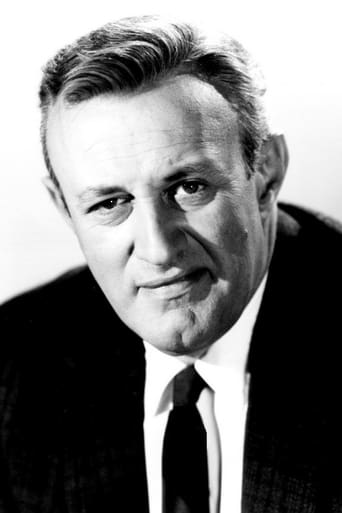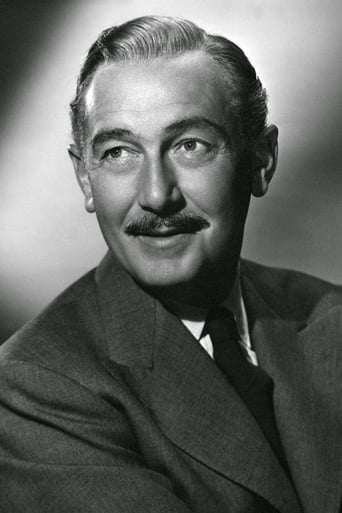Stevecorp
Don't listen to the negative reviews
WillSushyMedia
This movie was so-so. It had it's moments, but wasn't the greatest.
Siflutter
It's easily one of the freshest, sharpest and most enjoyable films of this year.
Caryl
It is a whirlwind of delight --- attractive actors, stunning couture, spectacular sets and outrageous parties. It's a feast for the eyes. But what really makes this dramedy work is the acting.
SimonJack
When this movie came out in 1962, I was in training for the U.S. Army. From April 1962 to Oct 1964, I served near Mainz, Germany, with the American airborne portion of the 8th Infantry Division (504, 505 and 509 Airborne units). I first saw this film sometime during 1962. That was during the Cold War – before Vietnam, and right after the Berlin Wall went up. Besides it being a World War II drama film with some action, it made an impression on me at that young age. It was about fighting against an oppressor and aggressor, and a story about a family divided by the war. There I was in Europe, where WWII had concluded just 17 years before. I was serving to defend a divided Germany where it's eastern half and the rest of Eastern Europe were held captive by the Soviet Union. We held maneuvers and trained along the Czech and East German borders. We had exercises with other NATO countries – British, West German and others. We jumped in Germany, Denmark and Turkey. While I was serving my country and a just cause – and was willing to die for both, deep inside I was like most other American patriots of the day. I hoped that I would never have to see battle. I hoped I would never be face- to-face with an enemy soldier when I had to either shoot to kill or be killed. I have since watched "The Four Horsemen of the Apocalypse" three or four more times. Each time I saw a little something else in the film. Most obvious, of course, is the tragedy of war and destruction of a family. With this most recent viewing of the film, another aspect emerged. I think it was always there, but now it loomed large. That was that good people cannot run away or isolate themselves from a world war. Or any abomination or injustice of such a nature. By its scope, it involves the whole world. Maybe not in the direct combat, but it affects the whole of humanity.In this film, the family patriarch, Julio Madariaga, had tried to do just that – isolate his family from war. By leaving his native Spain for Argentina three decades or more earlier, he hoped to raise a family that could hide from the evils of war. Indeed, what father would not want his family to be safe and away from war? But, in striving thus, Madariaga secluded his family from the world and what was going on in it. Had he not done so, his daughters, their husbands and children would likely have grown up better informed and more closely aligned as a family. By paying attention to events taking shape in Europe, they would have known more about Adolf Hitler and the Nazi threat to peace. By watching many years ahead of the Third Reich and the war, and discussing and looking closely at the events in Europe, the family would have become more close knit and understanding. By not discussing, arguing and living their South Americanism, the two sons- in-law never overcame the strong attachments to their native countries. And, that unbroken loyalty is what first drives the German Hartrott's to embrace Nazi Germany. Had the old man not died of a heart attack in Argentina early in the film, he surely would have died of a broken heart by film's end at the death of all of his grandchildren. This still is a good anti-war film, but it's more a film about what happens when people try to ignore evil that is taking place all around them. The person of Julio Desnoyers is the link in bringing out the selfishness of avoiding help for one's fellow man. His part is exaggerated as a hedonistic character, which makes the contrast all the more vivid. The fact that he can fall for and aggressively pursue a married woman to lure her away from her husband attests to his lack of unselfish upbringing all along. Each of the characters of this plot have some interesting aspects that stand out. This is a powerful film with strong messages. It has a superb cast of highly acclaimed actors. Charles Boyer as Marcelo Desnoyers, Paul Lukas as Karl von Hartrott, Paul Henreid as Etienne Laurier, Lee J. Cobb as Madariaga, and Glenn Ford as Julio Desnoyers – all were excellent. Another reviewer couldn't see Ford in an Hispanic role. Well his character was part Spanish, part French and whatever else. I think he was spot on. The rest of the cast were equally good. According to some sources, Vincent Minelli had problems directing this film. He wanted it to be set during World War I, as was the original story and the 1921 silent film based on the book. But, I think it fits perfectly with World War II. Most people would strain to get a connection with Boyer's character failing to serve in the French Army in the previous conflict – before WW I. That would have been the Franco-Prussian War of 1870. By changing the setting to WW II, I think Hollywood made the film more familiar. I don't understand why the movie was a box office flop – unless the public couldn't stand the outcome. This film is quite different than the 1921 movie in characters and plot, especially with the love interest of Julio. And that film veered a great deal from the novel of the same title by Vincente Ibanez. This is a thinking person's film. It is an interesting story with strong anti-war sentiments along with powerful subplots and social commentary. It should be in any serious collection of war films.
Tim Kidner
I have to stress that I watched this on Turner Classic Movies (TCM). the second time in several years. Not having seen the infamous Valentino starring silent movie, nor read the novel, my hope for a dark brooding epic remains somewhat dashed.The quality on TV was fairly soft, maybe not relevant with the DVD here but it didn't help my viewing, nor the over 3 hour running time, with ads.What does strike one is that it's a movie that's trying to get out from its limitations; Cinemascope at the cinema at the time, with its stereo soundtrack and Metrocolour (very washy on TCM), score by Andre Previn and the best part, the lush, majestic and often attractive globe- trotting location cinematography by Milton R. Krasner, it must have been a very different beast on release.I mention this TV version so much as the DVD is expensive and there aren't many alternative sellers and so for many people, it may well remain their only method of viewing.The odd and poorly cast set of stars is well known; Glenn Ford rarely shines or engages however and one feels that there is a great story somewhere - there's also an epic and expensive feel - director Vincente Minnelli has made some fabulous films - but one has to try just too hard to glean anything from it.To me, this means that it just floats by and one doesn't give it the attention it deserves. I'm not saying it should be re-made, re-cast etc but my recent re-watch was a disappointing one. It's impossible for me to say if the DVD quality (even if it is any better?) would raise the overall watchability to warrant a higher score. Somewhat disappointing.
Claudio Carvalho
In Argentina, the family man Julio Madariaga (Lee J. Cobb) is the patriarch of his family and considers his farm the paradise on Earth. One of his daughters, Luisa Desnoyers (Harriet MacGibbon), has married the Frenchman immigrant Marcelo Desnoyers (Charles Boyer) and they have one son, the playboy Julio (Glenn Ford), and one daughter, the gorgeous student of Sorbonne Chi Chi (Yvette Mimieux). His other daughter, Elena von Hartrott (Kathryn Givney), has married the German Karl von Hartrott (Paul Lukas), and they have three sons: Heinrich (Karl Boehm), Gustav and Franz.In 1938, Heinrich returns from Germany for a family reunion and when he tells that he has joined the SS, the displeased Julio Madariaga has a heart attack and dies. When France is occupied by the Germans, the family reunites in Paris and Franz is the Nazi administrator in France. The alienated Julio has a studio where he paints, and has a love affair with Marguerite Laurier (Ingrid Thulin), the wife of the owner of a newspaper Etienne Laurier (Paul Henreid) that is fighting in Belgium. Meanwhile Chi Chi joins the French resistance and is arrested. Julio uses the influence of his uncle Franz to release her. However, Chi Chi has an argument with Julio for his neutral position. When Chi Chi is tortured to death by Gestapo, Julio joins the resistance, using his relationship with the Germans to get inside information. "The 4 Horsemen of the Apocalypse" is an epic romance with the awakening of a playboy in times of war. The cinematography, art direction and costumes are amazing, but unfortunately the screenplay is shallow and the film is miscast in the lead role. Glenn Ford is never convincing as a French-Argentinean, and too old (46 years old) to be a playboy and son of Charles Boyer (63 years old). Further, it is ridiculous the actors and actresses speaking in English forcing accents in French, German and Spanish. I have never had the chance to see the 1921 original film to compare with this remake by Vincente Minnelli. My vote is six.Title (Brazil): "Os Quatro Cavaleiros do Apocalipse" ("The Four Horsemen of the Apocalypse")
edward-miller-1
I just caught this on TCM and it's the first time I've seen it since my teens. Either my maturity has given me a better appreciation for it or it has gotten better over the years, now that we're bombarded with so much garbage. I've carefully read all the comments here, and there's a common thread. Most take exception to the casting of Glenn Ford and classify the film as one of Minnelli's lesser efforts. It's not that I'm Glenn Ford's greatest fan, but I think he gives one of his finest performances here and is one of the movie's strengths. One doesn't have to be 21 to be a playboy; what he portrays, quite convincingly, is a mature dilletante. Minnelli's direction is typical of his late melodrama period that started with The Bad and the Beautiful. His style is jittery, baroque, and light years away from his airy musicals. The Four Horseman ranks right up there with some of his best later work, like Home From the Hill, Some Came Running, and The Cobweb. He has a particular flair for car scenes which started with his first Gothic, Undercurrent, in 1946. He gets one of the finest performances I've ever seen out of that limited actor, Charles Boyer. His scene with the gifted Paul Lukas where they mourn the deaths of their children is powerful and touching beyond words. The great disappointment, as everyone has noted, is the legendary dubbing of Ingrid Thulin by Angela Lansbury. What I find most peculiar is that I think Lansbury did not loop ALL of Thulin's dialogue, some lines sound like the voice of Thulin that I remember from The Damned and Return from the Ashes. The obvious question is: Why did M-G-M hire her if there was a problem with the voice? Didn't they test her before contract signing? In any case, the dubbing is unfortunate; her looks and performance are exquisite. My recommendation: SEE THIS GOOD, OLD FASHIONED, REALLY BIG MOVIE. P.S. Check out the magnificent, huge Andre Previn score.

